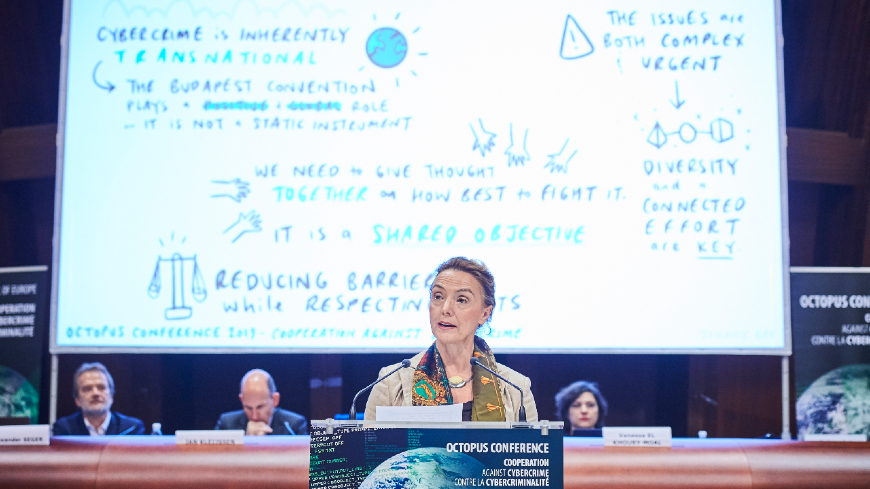 Why and how is the Council of Europe working against cybercrime?
Why and how is the Council of Europe working against cybercrime?
Cybercrime – that is offences against and by means of computer systems – has evolved into a significant threat to human rights, democracy and the rule of law as well as to international peace and stability, and it has major social and economic impact. In addition, any crime may involve evidence on a computer system needed in criminal investigations and proceedings.
The approach of the Council of Europe to address these challenges consists of the three inter-related elements of:
- the common standards of the Convention on Cybercrime (opened for signature in Budapest, Hungary, in November 2001) as the most relevant international criminal justice treaty on cybercrime and electronic evidence. It is supplemented by a First additional Protocol on Xenophobia and Racism via computer systems. A Second Additional Protocol has recently been adopted;
- the Cybercrime Convention Committee (T-CY) consisting of representatives of Parties to the Budapest Convention and responsible for assessing proper implementation of the Convention, preparing Guidance Notes and additional legal instruments, and facilitating cooperation among the Parties;
- capacity building projects by the dedicated Cybercrime Programme Office of the Council of Europe (C-PROC) to assist countries worldwide to strengthen their criminal justice capacities for the investigation, prosecution and adjudication of cybercrime and other cases involving electronic evidence in line with the Convention and recommendations of the T-CY.
Connect with us on social media
 In Focus
In Focus
C-PROC's 10th anniversary
(April 2024, Bucharest)
Council of Europe Summit
(Reykjavik, 16-17 May 2023)
 20th anniversary of the First Additional Protocol to the Convention on Cybercrime
20th anniversary of the First Additional Protocol to the Convention on Cybercrime
 Global State of Cybercrime Legislation 2013-2023: A Cursory Overview
Global State of Cybercrime Legislation 2013-2023: A Cursory Overview
 The Second Additional Protocol to the Budapest Convention was opened for signature on 12 May 2022
The Second Additional Protocol to the Budapest Convention was opened for signature on 12 May 2022
 2021 marked the 20 years of the Convention on Cybercrime
2021 marked the 20 years of the Convention on Cybercrime
 Related topics
Related topics
- Information Society and Action against Crime Directorate
- Guide to Human Rights for Internet Users
- Data protection
- Action against Terrorism
- Moneyval
- Protecting children
- Artificial Intelligence
- Istanbul Convention: Action against violence against women and domestic violence
- Internet Governance
- European Committee on Crime Problems (CDPC)
- Committee of Experts on the Operation of European Conventions on Co-operation in Criminal Matters (PC-OC)








